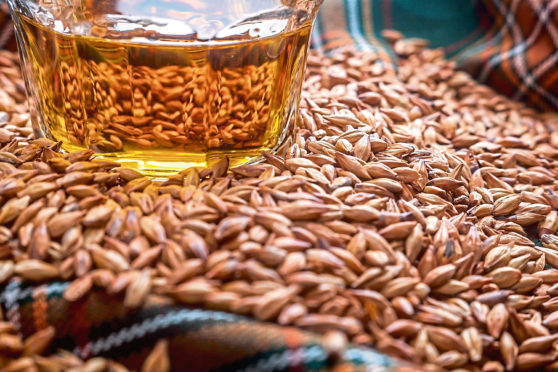A £50 million investment in infrastructure in Arbroath and Inverness will allow an additional 100,000 tonnes of Scottish barley destined for the burgeoning distilling trade to be malted within the country’s borders by 2022.
And the focus of the move being taken by Bairds Malt and procurement arm Scotgrain will be on supplying the whisky trade with a product which is “sown, grown and malted” in Scotland – providing a unique provenance to back up the marketing image used by many distillers.
Speaking at the recent Scottish malting conference organised by plant breeders Syngenta, Keith Headridge, commercial director of Scotgrain said while there was every sign the expansion in the whisky trade was set to continue, there had been little in the way of spending in the malting infrastructure required to service this in Scotland in recent years – other than the company’s £25m investment in Arbroath in 2010.
The company, which is part of the global GrainCorp Malt Group, handles more than 200,000 tonnes of malt in Scotland for the distilling trade.
However, despite the fact that the majority of the 900,000 tonnes of barley used by the distilling trade are grown in Scotland, other companies often take a considerable portion of this to plants south of the border for malting.
But Mr Headridge said that the move would do more than provide provenance for whisky makers.
“Not only will we be supplying a quality product to the distillers, but with state-of-the-art processing facilities and local sourcing, the investment will mark a huge step forward as far as road miles and carbon footprint are concerned, adding considerably to the sustainability of the product,” he added.
Admitting that the fortunes of the distilling trade were sometimes cyclical, he said volume contracts had already been agreed with distillers, but there had also been a step change in how whisky was marketed.
He said: “The Scottish brand is highly important to the industry – and more and more the industry is looking to ‘premiumisation’ of their products.
“This means selling into extremely high-value markets abroad and while a minimum of three years maturing is required, increasingly the premium end is looking at laying them down for 15, 18, 21, even 40 years. Being able to back such products up with sound provenance and sustainability credentials will be an important factor in this sector.”
The meeting also heard that malting barley producers in Scotland were likely to be better placed in an uncertain post-Brexit trading world than those producing for global commodity markets.
Syngenta’s seed campaigns manager, Tracy Creasy, said: “With a very strong internal demand for malting barley suited to the distilling trade growers will not have to cope with some of the global issues and complications which might hit other sectors through post-Brexit trade deals.
“And as there is a possibility that imported grain might become more expensive the question might be ‘can we produce enough to meet home consumption?’”
